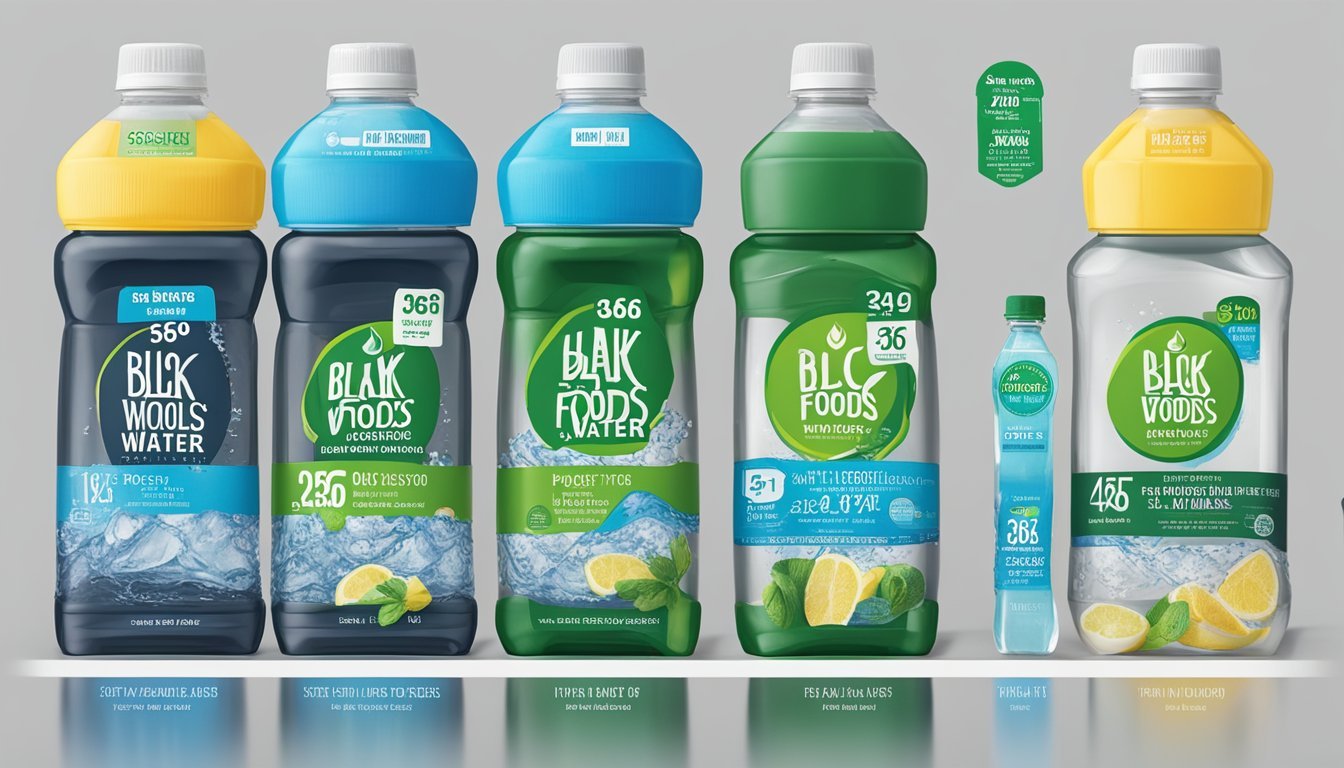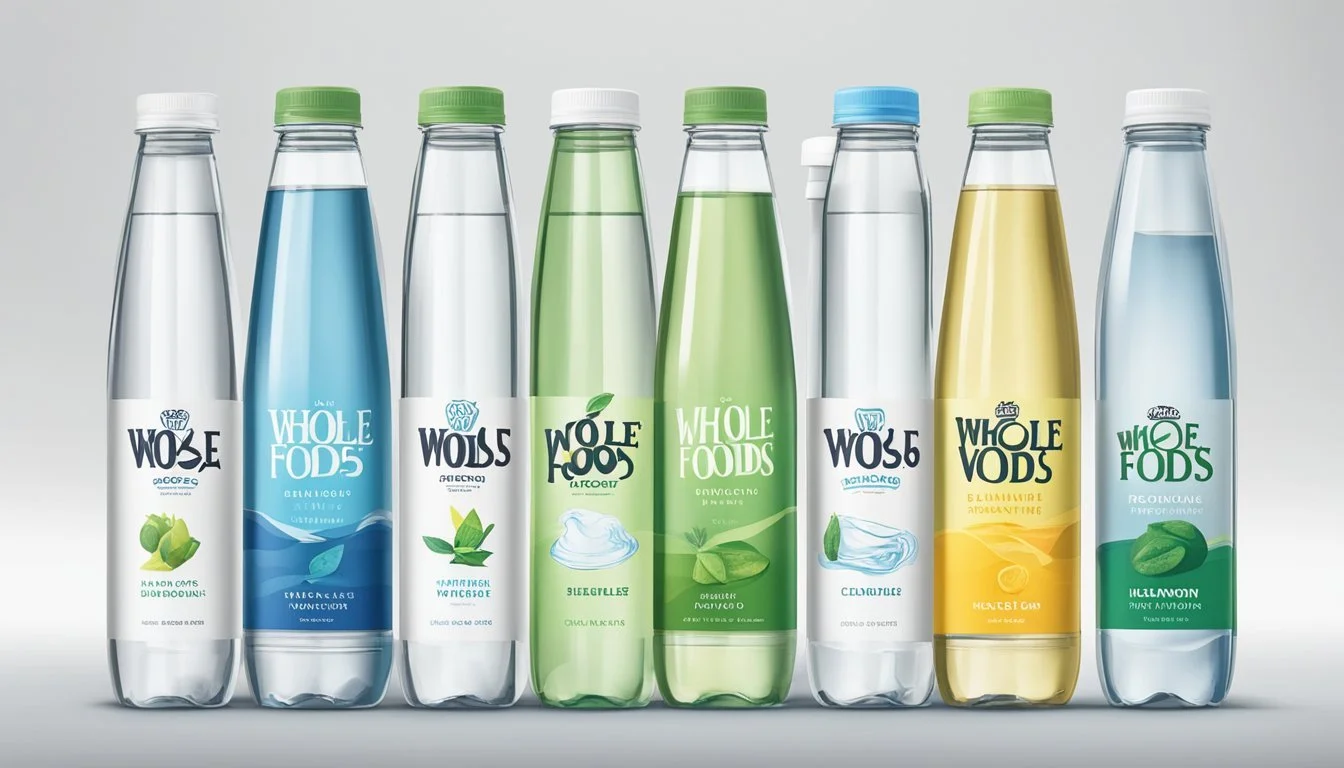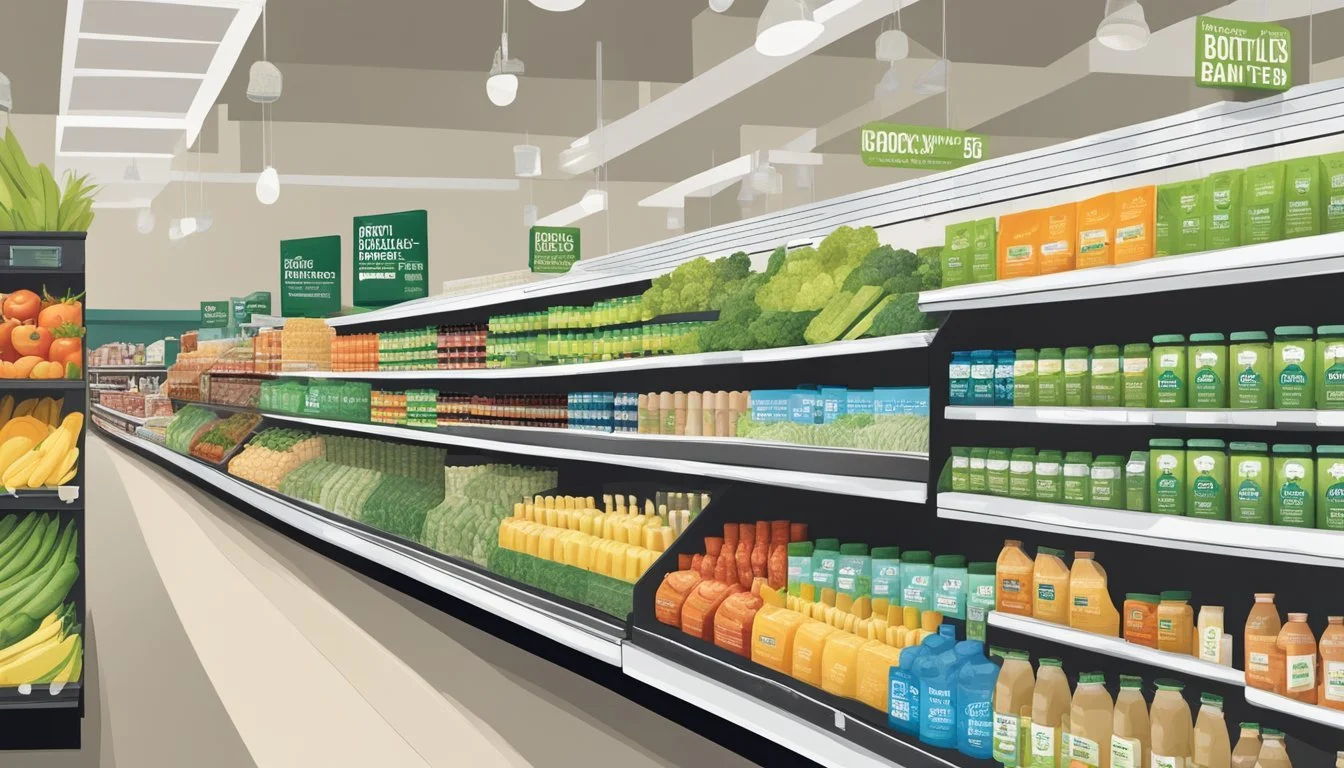Whole Foods 365 vs. Blk
Best Bottled Water Comparison
When it comes to choosing the best bottled water, two brands that often come up are Whole Foods 365 and Blk. Consumers are increasingly aware of what they drink, focusing on factors like pH levels, taste, and purity. Both Whole Foods 365 and Blk offer unique benefits, but one might stand out more to the discerning consumer.
Whole Foods 365 is known for its balance and accessibility. Priced affordably, this water generally maintains a pH range of 6.8 to 7.5, placing it near the ideal neutral point for drinking water. It offers a clean taste but has faced some criticisms regarding its occasional dry aftertaste.
On the other hand, Blk seeks to differentiate itself with its distinct black color, derived from fulvic minerals that promise added nutritional benefits. For those interested in unique hydration experiences, Blk might offer an edge with its mineral-rich content and eye-catching appearance. As consumer preferences vary, this comparison between Whole Foods 365 and Blk aims to help you decide which bottled water suits your hydration needs best.
Understanding Bottled Water
Bottled water comes in various forms and is regulated to ensure safety and quality. Consumers must also consider the environmental impact when choosing bottled water.
Types of Bottled Water
Bottled water can be categorized into several types based on its source and processing methods.
Spring Water is sourced from underground formations that flow to the surface naturally. It must be collected only at the spring or through a borehole that taps the underground formation.
Purified Water undergoes filtration processes such as reverse osmosis or distillation. This type of water often has fewer impurities and is suitable for consumption.
Electrolyte Water contains added minerals, such as sodium and potassium, which may help in replenishing lost electrolytes during physical activities.
Alkaline Water has a higher pH level, usually above 7. It is believed to neutralize acid in the body.
Sparkling Waters are carbonated, providing a fizzy texture. These can naturally contain minerals or have minerals added during processing.
Bottled Water Regulation
Bottled water quality and safety are regulated by various agencies to ensure it meets health standards.
In the USA, the Environmental Protection Agency (EPA) regulates tap water, setting limits for contaminants. The Food and Drug Administration (FDA) oversees bottled water to ensure it meets similar standards to tap water under the Safe Drinking Water Act.
The International Bottled Water Association (IBWA) provides voluntary guidance, ensuring member companies maintain high-quality standards. This includes frequent testing for contaminants to adhere to legal limits for safe drinking water.
Environmental Impact and Sustainability
Choosing bottled water also involves contemplating its environmental footprint.
Reusable Bottles are an environmentally friendly option that reduces plastic waste. Glass bottles, though heavier, are recyclable and often retain the taste better than plastic.
Packaging plays a significant role in environmental impact. Plastic bottles contribute to pollution if not recycled. Companies are encouraged to reduce their plastic usage and opt for sustainable packaging solutions.
To lessen environmental harm, consumers should prioritize brands that use recyclable materials and support policies for a cleaner environment.
These considerations ensure that bottled water remains a safe, high-quality, and environmentally conscious choice.
Comparative Analysis of Whole Foods 365 and Blk
Whole Foods 365 and Blk are two distinctive bottled water brands, each offering unique elements regarding quality, purity, taste, and health benefits. This section will explore these factors to provide a clearer picture for consumers.
Quality and Purity of Water
Whole Foods 365 sources its water from natural springs, often with minimal processing, maintaining purity. The brand offers several types, including spring and alkaline water.
Blk, on the other hand, undergoes a unique process, infusing purified water with fulvic minerals. This method is touted to enhance hydration and provide trace minerals not found in regular bottled water.
Key contaminants like PFAS chemicals, lead, and other heavy metals are crucial to monitor. Both brands prioritize stringent testing, aiming for safe water free from harmful substances.
Taste Profile and Mineral Content
Whole Foods 365 offers a clean, straightforward taste, often compared to purified waters. Some variants might have a dry aftertaste but remain largely consistent and neutral. Its mineral content is typical of natural spring sources, featuring essential electrolytes such as sodium and calcium.
Blk is distinguished by its black appearance due to fulvic minerals. It provides a unique taste profile, which some describe as earthy with a slight minerality. The presence of these minerals enhances its flavor and potentially its health benefits.
Health Implications
The nutritional aspect of Whole Foods 365 water is straightforward, with no sugars or calories, making it a good hydration source.
Blk's fulvic mineral infusion is said to support various health benefits, including improved nutrient absorption and detoxification. The addition of electrolytes like potassium and magnesium can aid in better hydration.
While both offer clean hydration, Blk's mineral content could provide additional health benefits. Consumers should check for any added chemicals, but both brands aim for purity, reducing risks associated with contaminants like lead and PFAS.
Branding and Consumer Choice
Whole Foods 365 leverages its reputation as a reliable grocery store brand, offering affordability and accessibility. The varied price points, from $0.79 for electrolyte water to $1.29 for alkaline water, appeal to a broad audience.
Blk targets a niche market with its visually unique product and claimed health benefits. The black color and distinctive packaging make it stand out, attracting consumers interested in novelty and added mineral content.
Both brands offer consumers specific advantages. Whole Foods 365 emphasizes natural sourcing and affordability, while Blk highlights innovative water purification and additional health benefits.
Industry and Expert Insights
Experts and industry reports provide valuable information on the quality, safety, and perception of Whole Foods 365 and Blk bottled water, so you can select with confidence.
Reports and Investigations
Consumer Reports has raised concerns regarding the safety and chemical content of bottled water, including Whole Foods' 365 brand. Investigative journalist Ryan Felton revealed that some bottled waters, including 365, contain PFAS, harmful chemicals linked to health risks.
The International Bottled Water Association (IBWA) mandates rigorous testing, yet certain brands fall short. Whole Foods 365 underwent scrutiny in Consumer Reports and other studies, showing the need for consumers to be aware of potential contaminants.
Blk water’s unique selling point, its fulvic minerals, has drawn various reactions. Some industry investigations question the actual health benefits of these minerals, while others highlight the need for more extensive testing to validate claims. Despite this, Blk water markets itself as a premium product with added benefits over standard bottled water.
Expert Opinions and Recommendations
Experts like water sommelier Joey Skladany often critique and provide insights into bottled water quality and taste. He notes that Whole Foods 365 spring water has a taste comparable to average purified waters, making it a modest choice among budget options.
Blk water, praised for its distinctive appearance and trace minerals, remains controversial among health professionals. They are divided, with some advocating for its potential benefits while others question the scientific backing of its health claims.
When seeking expert advice, many recommend considering not just the brand, but specific elements like pH balance and contaminant levels. Whole Foods 365 offers varying options, from alkaline to electrolyte water, catering to different consumer needs. Experts tend to favor choices with transparent testing results and clear health benefits.
Additional Factors to Consider
When comparing Whole Foods 365 and BLK bottled water, several additional factors should be taken into account, ranging from packaging and convenience to price and availability. It's also important to consider comparative alternatives that might better suit your needs.
Packaging and Convenience
Whole Foods 365 water is typically sold in traditional plastic bottles, which are available in various sizes to suit different needs. This can be convenient for those who prefer standard packaging for ease of use and familiarity.
On the other hand, BLK water stands out due to its distinct black-colored bottle and liquid, popular for its novelty. The dark hue comes from fulvic minerals, but this aesthetic choice may not appeal to everyone.
BLK bottles often come in slightly smaller quantities, making them portable but potentially less economical for regular use. Both brands are designed with convenience in mind, but preferences for bottle material and aesthetics will influence consumer choices.
Price and Availability
Whole Foods 365 water is widely available in Whole Foods Market locations across the USA. It's priced competitively, making it an affordable option for daily hydration. Regular shoppers of Whole Foods will find it easily accessible along with their weekly groceries.
BLK water, with its unique positioning and marketing, is often priced higher than typical bottled waters like Aquafina or Dasani. It's available in some grocery stores and online platforms but might not be as readily accessible as Whole Foods 365, especially in brick-and-mortar retail settings.
Consumers looking for specialty water might find BLK interesting despite its higher cost. However, for those prioritizing budget and widespread availability, Whole Foods 365 may be the better choice.
Comparative Alternatives
For those considering other options, several other brands are worth mentioning. Premium bottled waters such as Fiji, Evian, and Icelandic Glacial offer high-quality natural spring water, often favored for their taste and mineral content. Each brand has its unique selling proposition, like Fiji's untouched aquifer source or Evian's journey through the French Alps.
Essentia and Smartwater provide ionized and vapor-distilled options, frequently chosen for their purity. While options like Core Hydration and LifeWtr focus on balanced pH and added electrolytes, catering to those with specific hydration needs.
Brands like Arrowhead and Poland Spring offer more budget-friendly natural spring water options. Boxed Water, a sustainable choice, aims to reduce plastic waste. By analyzing these alternatives, consumers can better evaluate whether Whole Foods 365 or BLK meets their preferences and needs.





